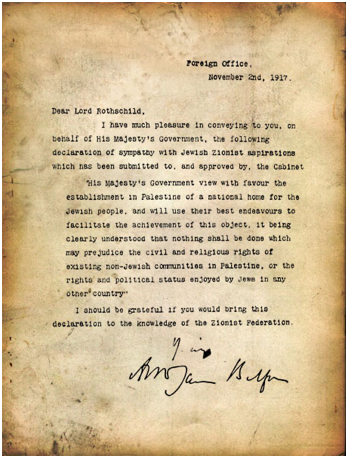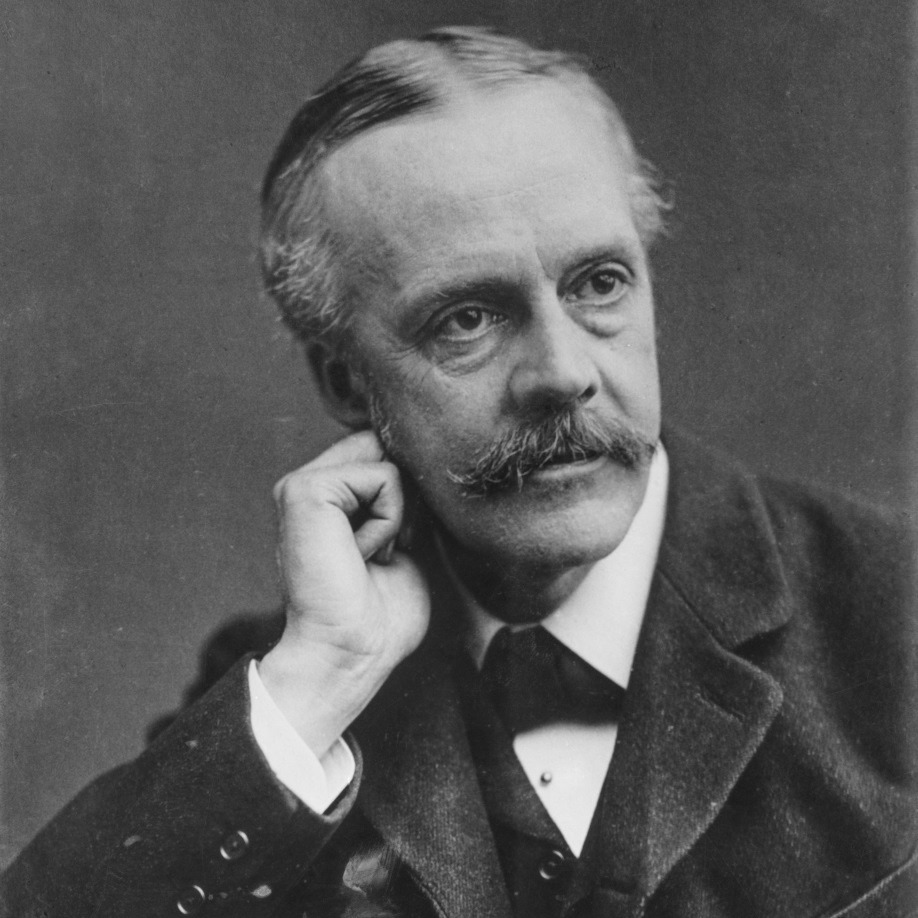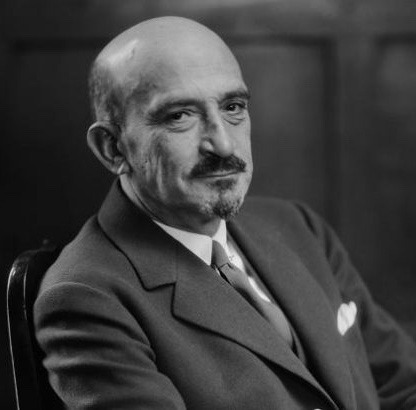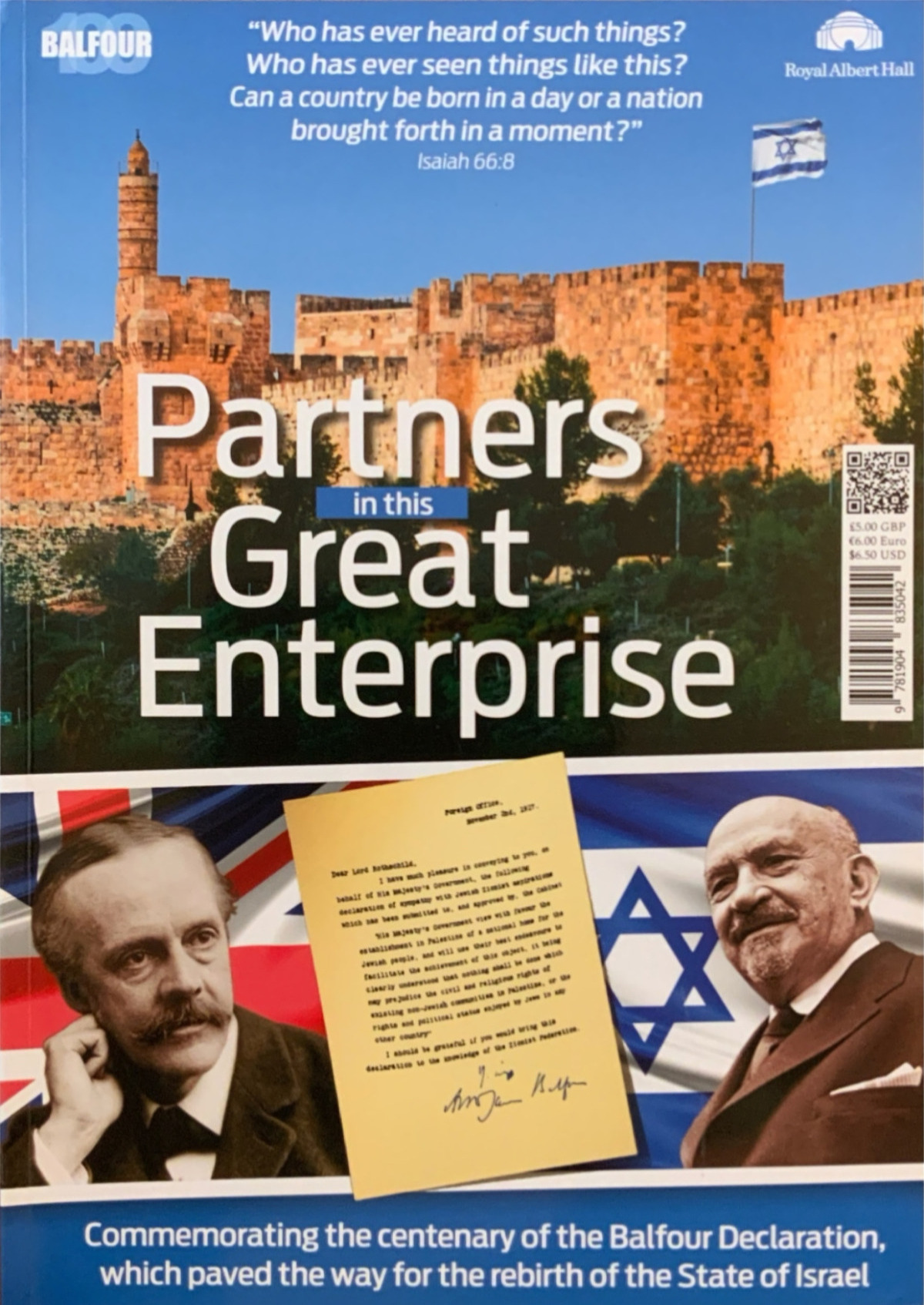THE BALFOUR DECLARATION
November 1917
British Government support for the concept of establishing a "Jewish Homeland" on ancient Israel's historical and biblical Land
At the height of World War One, an unusual friendship between an evangelical Christian politician and a Jewish immigrant scientist led to the scientist providing an essential element for British artillery shells. It also led to the first ever statement by a national government supporting the return of the Jewish people to their ancient homeland of Israel (then called "Palestine").
The politician was Arthur Balfour MP (see left), Foreign Secretary in 1917 and later to become Lord Balfour. As an evangelical Christian, Balfour believed in the Bible's prophecies of the return of the Jewish people to ancient Israel and their re-establishment as a nation. At the time, this view was held by many believing politicians and clergy in Britain, including Prime Minister David Lloyd George and a majority of his war cabinet.
The jewish scientist was Chaim Weizmann, a leading chemical scientist and also a leading figure in the British Zionist movement, actively advocating for the restoration of the Jews to Israel.
Weizmann had developed an artificial substitute for the acetone needed to make explosive charges for artillery guns. This was an essential material for Britain to continue to prosecute the war against Germany. Weizmann's ability to supply this gave him leverage with the British war cabinet.

The "Balfour Declaration" was a carefully considered political statement that reflected the personal world views of the members of the Cabinet. Many versions and submissions were considered, but the final decision on the Government's declaration came from Lloyd George's ten-man war cabinet.
A final draft of the British Government's declaration to the Jewish people was presented to the war cabinet on the afternoon of 31st October 1917, a decisive meeting. The Minutes record that Balfour told the Cabinet it was desirable that some Declaration favourable to the aspirations of the Jewish nationalists should now be made.
When a vote was taken, the matter was settled by the simple fact that the majority wanted it.
On the same day, at the very time Lloyd-George's war cabinet was agreeing the wording of the declaration to be made, British and ANZAC forces were taking the ancient city of Beersheba from the Turkish/German force holding it. This opened the way to Jerusalem and British conquest of the Ottoman empire.
The war cabinet document - the "Balfour Declaration" - was worthless unless Britain held the land she wanted to allocate to the Jews.
The conquest of Palestine meant nothing if the Balfour Declaration did not enable a follow-up action that gained an ally in the region after the war was won.
That both occurred at the same time on the same day is more than coincidence; it indicates divine intervention!
(photo : 90th anniversary reenactment (2007) of the ANZAC charge that took Beersheba)
Momentous decisions, like the one made by the British war cabinet in 1917, are never simple; there is always compromise!
Weizmann (bottom right) and the Zionist Federation did not get everything they had asked for in the somewhat nebulous wording of the Declaration. At the same time, Britain needed access to Middle-Eastern oil and desired to have a friendly ally in the region to enable this. The Declaration also procured the support of the huge Jewish population of Russia, where Zionism was also on the rise.
However, at the end of the day the Government produced a wording that was historic and that was in part repeated in the San Remo Declaration and in the text of the League of Nations' mandate to Britain to govern Palestine and "mentor" it to become a permanent home for the Jewish people.



Centenary event, 2017
On 7th November 2017, Love Never Fails held a three-hour event in the Royal Albert Hall, "Partners In This Great Enterprise". Christian supporters and Jewish friends from all corners of the UK filled the Hall, and a 500-strong choir even travelled over from the Netherlands to perform. The video recording of the event can be watched on the right.
The programme portrayed more than three centuries of historical background leading up to the Balfour Declaration. Actors played the parts of famous evangelical Christians such as John and Charles Wesley, William Wilberforce and Lord Shaftesbury, Bishop J.C. Ryle and Charles Haddon Spurgeon, and of course Lloyd George and Balfour, all of whom spoke about and worked for the restoration of the biblical Jewish homeland.
The last contribution was a commitment by young adults to pass on this legacy of previous generations. Finally, the Israeli ambassador Daniel Taub concluded the event with a heartfelt expression of thanks for the warm support, reflecting centuries of British solidarity with the Jewish people.
A glossy 24-page magazine was produced for the event, with informative articles on relevant topics, sponsored by a wide number of businesses and organisations. This is now out of print.
